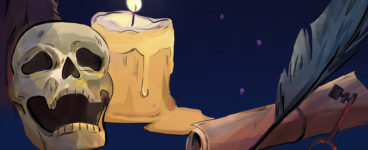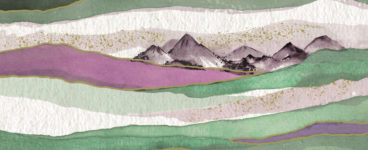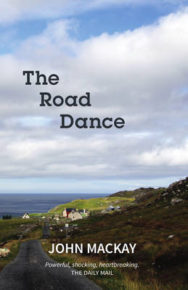‘This was the only world Kirsty MacLeod knew, but she dreamed of more. There had always been restlessness within her; it was the very essence of her. She read in her Bible of peoples and of lands so different from anything she knew.’
Released to tie in with the acclaimed film tie-in, The Road Dance follows Kirsty MacLeod, a beautiful young woman, coveted by all the young men of her island village. She dreams of America, of following the setting sun west to a better life. She meets the man who promises to make her dreams come true, but then the Great War breaks out. You can read an extract of the book, and watch the film trailer, below.
The Road Dance
By John Mackay
Published by Luath Press
Life on this island was a constant struggle against the raw power of nature. It lay on the very western edge of Europe and was first to bear the brunt of the uninterrupted Atlantic storms and last to feel the warmth of the continental air streams from the south. It was the outpost of the continent, and it had about it the wildness and harshness of the frontier.
Boils of rock betrayed the thinness of the soil; like eruptions on a pale face, they were evidence that this was not a healthy land. The people survived the poor earth and stood against the driving rain and constant wind. With the yield from their crofts, their beasts and the sea, the people survived, and they thanked God for His goodness and sang His praise. The seeds of faith sown in a foreign land in a different millennium had no deeper, stronger root than here, here where the soil was thin but the soul was fertile. For six days of the week they toiled in the harshness of the land He bequeathed them, and on the seventh day they thanked Him for it. Eternal peace and salvation brought joy to those who believed, although their faces when in church to hear His word showed little exaltation.
This was the only world Kirsty MacLeod knew, but she dreamed of more. There had always been restlessness within her; it was the very essence of her. She read in her Bible of peoples and of lands so different from anything she knew. Her father would enthral her with his tales from the ports he docked at down the west coast and further over to the east. For a girl who’d never left her own district, there was an excitement about all that was beyond her.
Ten years before, a ship had arrived on the sea loch. It had come to take some émigrés away to the Americas. The sight of the ship thrilled her.
‘Did God make that, Father?’ she had asked in wonder.
‘No, my darling, that was made by men.’
‘How could men make something so big, Father?’
‘It takes hundreds of men to build big ships like that. And they go all over the world. They bring tea back from India, silk from China, tobacco from America. And they take things from here back to these countries. Sadly they take our people away too.’
‘A boat like that has been to America, Father?’ ‘Many times. A boat like that will have crossed the ocean many’s a time. That boat you see there has probably been to places like New York and more.’
‘But no one ever comes back from New York, Father. Mam told me so.’
Her father chuckled.
‘Your Mam might well be right, m’dear. No person might come back from New York, but the ships,’ he said with admiration, ‘ships like that can come and go to New York as often as the wind.’
‘But why do the people not come back?’
‘Oh there are many reasons. Money more than anything. It is a lack of money that makes them go and the same that stops them coming back. And a lot of them don’t ever want to come back. It’s a grand life some of them have over there, better than they could ever have here. There is nothing for them to come back to.’
‘But this is home.’
‘It comes to us all. We all leave home sometime, it’s just that some travel further than others. Home is where you make it. And in America, from what I hear, it’s a better place to have a home.’
‘Would you like to have your home in America Father?’ Her father was silent for a moment as he looked to the ship before he stooped and swept her up in his strong arms.
‘How could I have my home in America while I have my own big girl right here on the island? You’re here, your Mam is here and Neil and Annie. This is my home.’
Years on she remembered the bubbling emotions of that day. Young men struggling to contain their tears as their mothers, faces crushed in sorrow, hugged them for the last time. The bewilderment of children too young to understand what was happening, the only certainty amidst the rabble being the instruction they had to hold tight to their tiny bit of luggage. One boy, maybe three years younger than herself, sat on top of a trunk with both hands wound round the handle of a black kettle. She had felt strangely envious of him, knowing the adventure that lay ahead of him. It had been the source of much guilt for her. How did Annie, her twin, love being at home so much, helping her mother, while Kirsty dreamt of being far away? Perhaps she loved her mother and father less, though she knew she loved them plenty.
Rowing boats had taken the travellers from the pier to the boat, and Kirsty had stayed for much of the afternoon watching the embarkation while her father had helped row the boats out. Some would sit waving repeatedly at those they had just left until they climbed onto the ship. Even then, they quickly returned to the decks to look back at the world they were leaving and would continue to do so until it fell away behind the horizon.
There were others, though, having said their goodbyes, who were now looking ahead to their future. Kirsty was captivated by one young woman who had climbed onto her father’s boat with only a trunk and a bag. She was travelling alone and no one had come to say farewell. Kirsty had fantasised about who she might be and why she was alone. The woman had sat quietly in the rowing boat and had not looked back once. She had graciously accepted assistance to get onto the ship and then she was gone from view.
Kirsty was only a young girl, but the images and feelings of that day had never left her. Even now she wanted to be like that mysterious woman. She knew that so many who had been forced to sail away longed to return. The songs of the émigrés yearned for home. They may be prosperous in the New World, but home was the island they knew they would never see again, and how they wept for it. Kirsty could not understand why they cried. They may have had to leave to find work, to make a life for themselves, but that they had surely done. Not for them the back-wrenching labour of cutting the peat, lifting the potatoes, scything the hay and gutting the herring; the constant work, from the setting of the fire and milking the cow in the morning to the covering of the embers late at night. Those gone wrote of factories, huge buildings where hundreds, even thousands worked. And when the day was done they were free. She wanted to join the generations who had gone before, to go to the big cities where the letters said the buildings scraped the sky, and jobs and land were to be had by all. It sounded like the land of dreams, a New World for a new life.
The Road Dance by John Mackay is published by Luath Press, priced £8.99.
ALSO IN THIS ISSUE

 When Other People Saw Us, They Saw the Dead
When Other People Saw Us, They Saw the Dead
‘She wandered onto the balcony, where she could peek over the trees and see ravines ravaging the lan …

 Maud Rowell on The Living Mountain
Maud Rowell on The Living Mountain
‘I must hold on to the knowledge that I recognise Shepherd’s passion in myself, and that once I am t …













